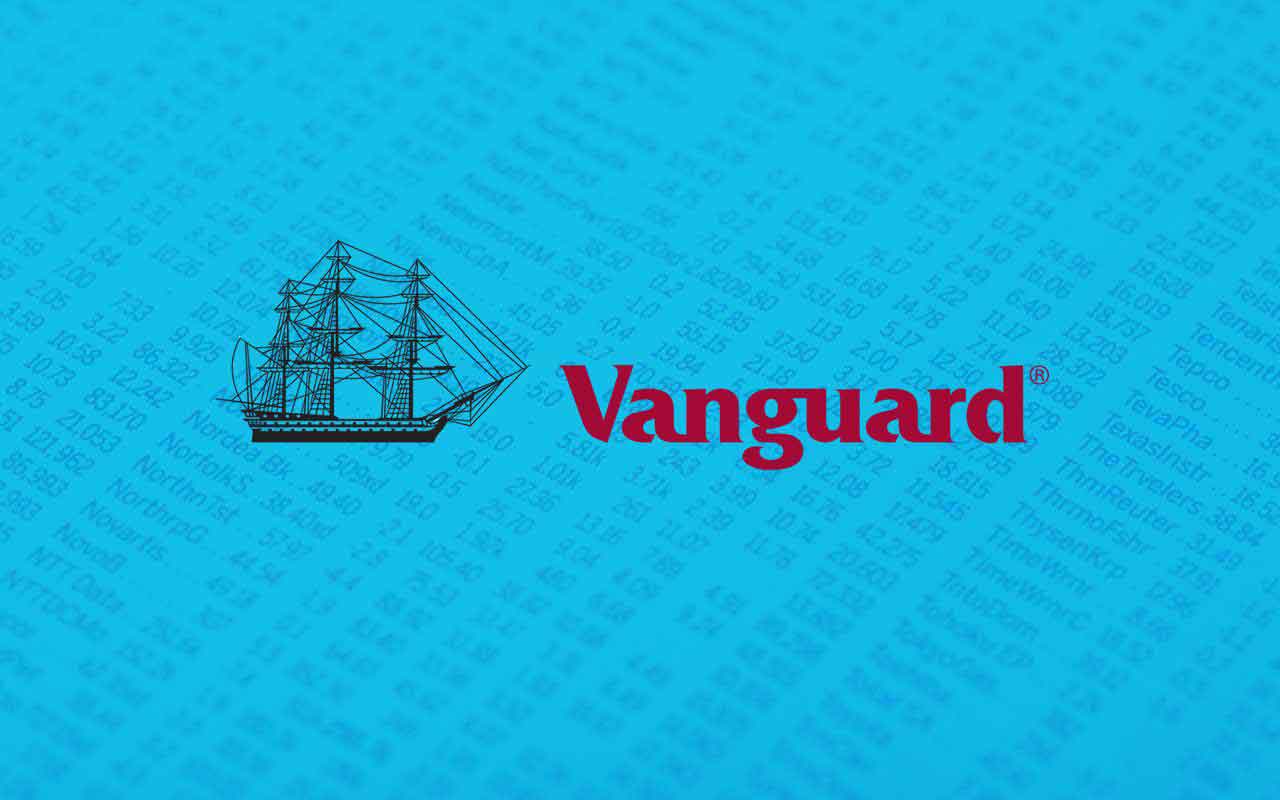The 5 Best Vanguard Funds for Retirees


Profit and prosper with the best of Kiplinger's advice on investing, taxes, retirement, personal finance and much more. Delivered daily. Enter your email in the box and click Sign Me Up.
You are now subscribed
Your newsletter sign-up was successful
Want to add more newsletters?

Delivered daily
Kiplinger Today
Profit and prosper with the best of Kiplinger's advice on investing, taxes, retirement, personal finance and much more delivered daily. Smart money moves start here.

Sent five days a week
Kiplinger A Step Ahead
Get practical help to make better financial decisions in your everyday life, from spending to savings on top deals.

Delivered daily
Kiplinger Closing Bell
Get today's biggest financial and investing headlines delivered to your inbox every day the U.S. stock market is open.

Sent twice a week
Kiplinger Adviser Intel
Financial pros across the country share best practices and fresh tactics to preserve and grow your wealth.

Delivered weekly
Kiplinger Tax Tips
Trim your federal and state tax bills with practical tax-planning and tax-cutting strategies.

Sent twice a week
Kiplinger Retirement Tips
Your twice-a-week guide to planning and enjoying a financially secure and richly rewarding retirement

Sent bimonthly.
Kiplinger Adviser Angle
Insights for advisers, wealth managers and other financial professionals.

Sent twice a week
Kiplinger Investing Weekly
Your twice-a-week roundup of promising stocks, funds, companies and industries you should consider, ones you should avoid, and why.

Sent weekly for six weeks
Kiplinger Invest for Retirement
Your step-by-step six-part series on how to invest for retirement, from devising a successful strategy to exactly which investments to choose.
Vanguard, with more than $5 trillion in global assets under management, is the world’s largest mutual fund provider – and for good reason.
Vanguard funds pioneered index investing and, since its founding in the 1970s by the late Jack Bogle, have emphasized low costs. Organized like a mutual insurance company, Vanguard’s funds are owned by fund shareholders and run “at-cost.” There’s no need to turn a profit to satisfy outside investors.
Any time I’m tasked with covering Vanguard funds, I’m a happy guy. Very few Vanguard funds haven’t done right by investors, but Vanguard is especially good for those in retirement. Retirees, after all, don’t want to take outsize risks in their investing, and Vanguard’s managers aren’t encouraged to take big gambles. Low costs remove a lot of the pressure on managers to take extra risk in the hopes of squeezing out a little more profit.
Here are my five best Vanguard funds for retirees. This list heavily emphasizes active management (but I do think highly of some Vanguard index funds). Several of my picks also are recommended by Dan Wiener, editor of the The Independent Adviser for Vanguard Investors newsletter.
Says Wiener: “Find a good manager at Vanguard, and you’ll find a fund that will outperform its benchmark and comparable Vanguard index funds.”
Data is as of April 17. Yields represent the trailing 12-month yield, which is a standard measure for equity funds.

Vanguard Total Stock Market Admiral
- Market value: $772.7 billion
- Yield: 1.9%
- Expenses: 0.04%
- Vanguard Total Stock Market Index Admiral (VTSAX, $72.06) is the only index fund on this list, and that’s because it’s both one of the best indexed Vanguard funds and a great fit for retirees. It even boasts a long-term performance edge against Vanguard 500 Index Fund Admiral (VFIAX). Over the past decade, VTSAX’s annual average performance has topped the Standard & Poor’s 500-stock index tracker by 10 basis points (a basis point is one one-hundredth of a percent).
The S&P 500 and VFIAX invest in a roughly 90%-10% mix of large caps and mid-caps. Total Stock Market covers much more of the stock market, with its 3,600-plus holdings invested across large caps (76.2%), mid-caps (17.4%) and smaller companies (6.4%). That said, larger companies still command the largest weights in both fund, so their top holdings are virtually identical, including the likes of Microsoft (MSFT), Apple (AAPL) and Amazon.com (AMZN).
VTSAX has an affordable minimum initial investment of $3,000. The expense ratio is a mere 0.04% annually, or just $4 for every $10,000 invested. Very little portfolio turnover helps keep costs low, too – Total Stock Market trades a tiny 3% of its assets, on average, every year.
Note: This fund also is available as an exchange-traded fund under the symbol VTI.

Vanguard International Growth Admiral Shares
- Market value: $35.6 billion
- Yield: 1.5%
- Expenses: 0.32%
Take two of the world’s best money managers, then cut expenses to the bone, and you have a first-class foreign stock fund in Vanguard International Growth Admiral (VWILX).
Baillie Gifford runs 60% of the fund; Schroders manages the rest. The fund has had a remarkable three-year run through April 17. It returned an annualized 15.2% over that stretch – an amazing 6.6 percentage points better per year than the MSCI All-Country World Ex U.S. Index. The credit for that streak goes largely to three decisions made by the two firms:
- Overweighting emerging markets, which outpaced developed foreign developed-market stocks
- Buying growth stocks despite their lofty valuations
- Putting more than 10% of assets into U.S. stocks such as Amazon.com (AMZN).
Putting more than 10% of assets into U.S. stocks such as Amazon.com. Top holdings include Tencent (TCEHY), Alibaba (BABA) and Baidu (BIDU) – tech stocks known as part of the “BAITs,” which are like the Chinese equivalent of America’s “FANGs.” In all, 48% of assets are currently in consumer cyclical and technology stocks.
Be careful. VWILX is a superb fund, but don’t expect the recent outperformance to continue. Indeed, I’d be shocked if the fund didn’t go through some periods of below-market performance given how aggressively it’s positioned. The fund is 30% more volatile than the MSCI index, thanks in part to its high-priced tech stocks.
Buy this fund in relatively small doses, perhaps pairing it with a value-oriented foreign fund, such as Oakmark International (OAKIX). When VWILX does fall, hold on tight.
Note: VWILX requires a $50,000 minimum initial investment. VWIGX is the symbol for the investor class of this fund, which charges 0.45% in annual expenses but requires a mere $3,000 minimum investment.

Vanguard Health Care
- Market value: $46.5 billion
- Yield: 1.2%
- Expenses: 0.38%
Health-care stocks led the S&P 500’s 11 sectors in 2018 but have stumbled of late. It is the only sector in the index that has delivered a loss so far in 2019.
Threats of tighter regulation of health care, particularly of prescription drug prices, have weighed heavily on the sector. But it’s difficult to see any big changes coming from Washington given the opposition to most regulation by Republicans.
That makes this an ideal time to invest in Vanguard Health Care Investor (VGHCX, $183.01), one of the best Vanguard funds under the “sector and specialty” category. Demand for better medical treatments continues to grow as more Americans enter old age. In fact, analysts forecast that health-care stocks will report the second-highest earnings growth among the S&P sectors for the first quarter.
VGHCX is a large-cap fund with a preference for pharmaceuticals (47% of assets) over biotechnology (16%). Its size prevents it from venturing much into small caps. But the fund has always been run with a conservative, large-cap tilt; top holdings include Big Pharma outfits such as AstraZeneca (AZN) and Bristol-Myers Squibb (BMY). About 25% of the fund is in foreign stocks.
Lead manager Jean Hynes graduated from Wellesley College in 1991 and shortly thereafter went to work at Wellington Management, which runs the fund for Vanguard. She rose through the ranks, becoming co-manager in 2008 and manager in 2012. And she’s extremely patient. Turnover averages about 10% to 15% annually, and many stocks have been in the fund for a decade or more.
Long-term returns have been solid. Over the past 15 years, the fund has returned an annualized 10.6% – an average of two percentage points per year ahead of the S&P 500.

Vanguard Short-Term Investment Grade Admiral
- Market value: $59.2 billion
- SEC Yield: 2.9%*
- Expenses: 0.10%
The bond market is paying very little extra, if anything, to investors who stretch for yield – either by investing in long-duration bond funds or low-credit-quality bonds. And with bond yields so puny across the board, Vanguard’s low expense ratios are a huge plus.
- Vanguard Short-Term Investment-Grade Admiral (VFSUX, $10.57) pays a yield of 2.9% on a high-quality portfolio dominated by corporate bonds. However, the fund also has a 25% weighting in asset-backed securities and commercial mortgages, as well as about 10% in super-safe Treasuries.
The Vanguard fund is a low-risk option that pays a meaningful higher return than the 10-year Treasury bond, which yields a smidgen over 2.5%. Only 19% of the fund is invested in BBB-rated bonds, which, during an economic downturn, could fall sharply.
Don’t let turnover at the top of this fund steer you away. Longtime lead manager Greg Nassour left the fund in April. But Vanguard’s fixed-income resources are broad and deep with some 60 managers, analysts and traders. No single departure should make much difference. The fund is managed relatively tightly around an internal Vanguard benchmark.
In a high-quality fund like this one, view the yield (2.9%) as the reward for owning the fund and the duration (2.5 years) as the risk. Duration tells you how much the fund will drop in price if interest rates rise by one percentage point. In recent years, it has been tough to find a fund where the yield is higher than the duration.
Note: VFSUX requires a hefty $50,000 minimum initial investment. VFSTX is the symbol for the investor class of this fund, and while it charges double the price for the same portfolio, it requires a mere $3,000 minimum investment. VCSH is the symbol for an exchange-traded index fund that invests almost exclusively in corporate bonds and has 46% of assets in BBBs, and charges just 0.07% in expenses. I’ve recommended VCSH previously, but VFSUX yields just seven one-hundredths of a percentage point less while offering substantially less risk. It’s worth it if you can afford the minimum investment.
* SEC yield reflects the interest earned after deducting fund expenses for the most recent 30-day period and is a standard measure for bond and preferred-stock funds.

Vanguard Limited-Term Tax-Exempt Admiral
- Market value: $27.4 billion
- SEC Yield: 1.8%
- Expenses: 0.09%
The municipal bond market is just about as stingy as the taxable bond market. There’s little to be gained by investing in longer-term munis or low-quality tax-exempt bonds. The makes Vanguard Limited-Term Tax-Exempt Admiral (VMLUX, $10.95) a good choice.
VMLUX holds more than 5,200 municipal bonds, yields 1.8% and has a duration of 2.4 years. The fund’s average credit quality is double AA. It holds only about 10% of assets in bonds rated below single-A.
Don’t look for much risk-taking here, and don’t expect fat returns. Bonds, after all, are primarily a defensive investment, designed to cushion your portfolio when stocks crater. Anything you earn in yield or price appreciation is icing on the cake.
Note: VMLUX requires a $50,000 minimum initial investment. VMLTX is the symbol for the investor class of this fund, which charges 0.17% in annual expenses but requires a mere $3,000 minimum investment.
Steve Goldberg is an investment adviser in the Washington, D.C., area.
Profit and prosper with the best of Kiplinger's advice on investing, taxes, retirement, personal finance and much more. Delivered daily. Enter your email in the box and click Sign Me Up.

-
 Quiz: Do You Know How to Avoid the "Medigap Trap?"
Quiz: Do You Know How to Avoid the "Medigap Trap?"Quiz Test your basic knowledge of the "Medigap Trap" in our quick quiz.
-
 5 Top Tax-Efficient Mutual Funds for Smarter Investing
5 Top Tax-Efficient Mutual Funds for Smarter InvestingMutual funds are many things, but "tax-friendly" usually isn't one of them. These are the exceptions.
-
 AI Sparks Existential Crisis for Software Stocks
AI Sparks Existential Crisis for Software StocksThe Kiplinger Letter Fears that SaaS subscription software could be rendered obsolete by artificial intelligence make investors jittery.
-
 Stocks Make More Big Up and Down Moves: Stock Market Today
Stocks Make More Big Up and Down Moves: Stock Market TodayThe impact of revolutionary technology has replaced world-changing trade policy as the major variable for markets, with mixed results for sectors and stocks.
-
 Small Caps Step Up, Tech Is Still a Drag: Stock Market Today
Small Caps Step Up, Tech Is Still a Drag: Stock Market TodayEarly strength gave way to AI skepticism again as a volatile trading week ended on another mixed note.
-
 AI Unwind Takes 2% Off the Nasdaq: Stock Market Today
AI Unwind Takes 2% Off the Nasdaq: Stock Market TodayMarkets are paying more and more attention to hyperscalers' plans to spend more and more money on artificial intelligence.
-
 Strong Jobs Report Leaves Markets Flat: Stock Market Today
Strong Jobs Report Leaves Markets Flat: Stock Market TodayInvestors, traders and speculators are taking time to weigh the latest labor market data against their hopes for lower interest rates.
-
 Dow Hits New High Ahead of January Jobs Report: Stock Market Today
Dow Hits New High Ahead of January Jobs Report: Stock Market TodayA weak reading on December retail sales was in focus ahead of Wednesday's delayed labor market data.
-
 Tech Stocks Fuel Strong Start to the Week: Stock Market Today
Tech Stocks Fuel Strong Start to the Week: Stock Market TodayThe blue-chip Dow Jones Industrial Average extended its run above 50,000 on Monday and there are plenty of catalysts to keep the 30-stock index climbing.
-
 Dow Adds 1,206 Points to Top 50,000: Stock Market Today
Dow Adds 1,206 Points to Top 50,000: Stock Market TodayThe S&P 500 and Nasdaq also had strong finishes to a volatile week, with beaten-down tech stocks outperforming.
-
 Stocks Sink With Alphabet, Bitcoin: Stock Market Today
Stocks Sink With Alphabet, Bitcoin: Stock Market TodayA dismal round of jobs data did little to lift sentiment on Thursday.
